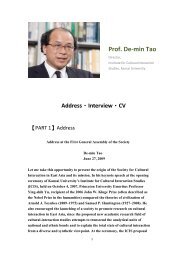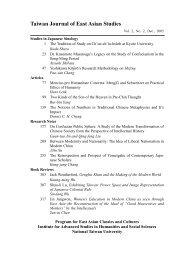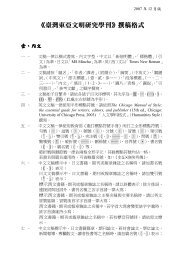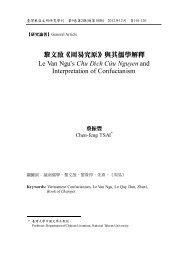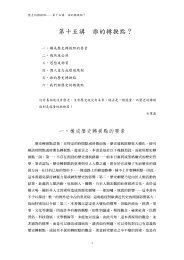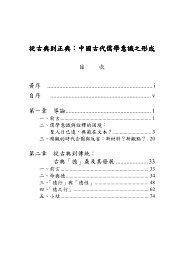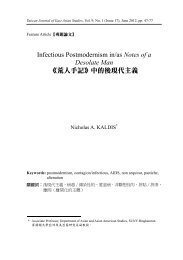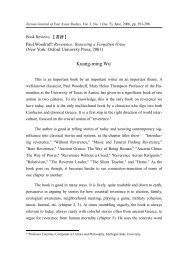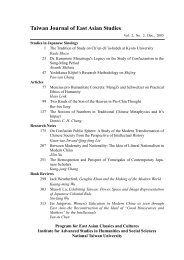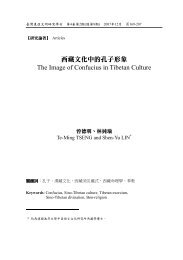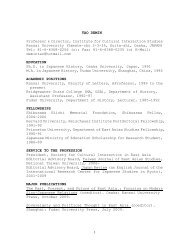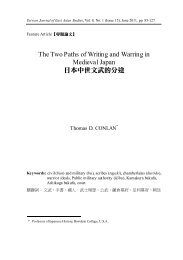臺灣東亞文明研究學刊 - 東亞經典與文化研究計畫 - 國立臺灣大學
臺灣東亞文明研究學刊 - 東亞經典與文化研究計畫 - 國立臺灣大學
臺灣東亞文明研究學刊 - 東亞經典與文化研究計畫 - 國立臺灣大學
You also want an ePaper? Increase the reach of your titles
YUMPU automatically turns print PDFs into web optimized ePapers that Google loves.
Nicholas T. PHILLIPSON Theorising the Problems of Small Nations in the Enlightenment 231<br />
Tacitus, Machiavelli and Harrington, he was interested in classic questions about<br />
the relations between power and property, in the origins of the modern state system<br />
and in the consequences of the increasingly imperial power of modern monarchies<br />
for the smaller nations, republics and provinces of Europe. He entered Scottish<br />
politics after the Glorious Revolution and quickly established himself as a radical<br />
who was determined to limit the power of the English court over Scottish<br />
government. But he was enough of a modernist to be fully aware of the importance<br />
of commerce to the politics of modern Europe and to Scotland's future; it is<br />
significant that he invested heavily in the Darien Scheme. It is equally significant<br />
that, after its collapse, he was to loose no time in looking for new ways to rebuild<br />
his country's political institutions and to reconceptualise its relations with England. 3<br />
Fletcher set out the guiding principles of his thinking in a series of pamphlets<br />
written in 1698 after the collapse of the Darien Scheme. His theme was the<br />
consequences for modern Europe of the profound shift in the balance of power and<br />
property that had taken place throughout Europe with the decline of feudalism. He<br />
thought that modern Europe was at a turning point in its history, threatened with the<br />
prospect of Universal Monarchy which only the most radical action of patriots like<br />
himself could hope to avert. Like David Hume a generation later he thought that<br />
confronting this threat in his own country demanded a reappraisal of his country's<br />
history in the light of the lessons modern Europe had to offer. He was a harsh critic<br />
of the narrow, provincial thinking of those who thought of their nations histories in<br />
exceptionalist terms without any regard for the wider European contexts in which<br />
their institutions and cultures had developed. Scotland's present condition, like that<br />
of every other European state had its roots in a feudal system which had survived<br />
for a millennium and was now everywhere in an advanced stage of decline. In a<br />
quick, bold and at times elliptical sketch, he portrayed European feudalism as a<br />
system of government which had established a balance of power and property<br />
3 Fletcher's life is conveniently summarised in Andrew Fletcher, Andrew Fletcher: Political Works,<br />
edited by John Robertson, (Cambridge: Cambridge University Press, 1997), pp. ix-xxxiv.<br />
vii



